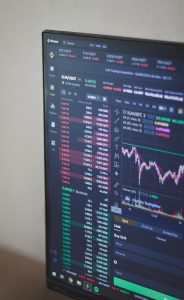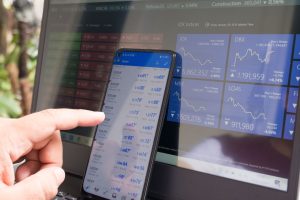Forex trading is the buying and selling of currencies, and the forex spread refers to the difference between the bid and ask price of a currency pair. It is an essential aspect of forex trading and has a significant impact on the profitability of a trade.
Forex spread is the cost of trading and is determined by various factors, including market volatility, liquidity, and the broker’s commission. The spread is usually indicated in pips, which is the smallest unit of measurement in forex trading. One pip is equivalent to 0.0001 of a currency unit.
Bid and Ask Price
To understand the forex spread, it is crucial to understand the bid and ask price. The bid price is the price at which a trader can sell a currency pair, while the ask price is the price at which a trader can buy a currency pair. The difference between these two prices is the spread.
For example, suppose the EUR/USD currency pair has a bid price of 1.2000 and an ask price of 1.2005. In that case, the spread is five pips. This means that a trader must earn at least five pips to break even on the trade.
Variable and Fixed Spreads
Forex spreads can be either fixed or variable. A fixed spread remains constant regardless of market conditions, while a variable spread changes depending on market volatility and liquidity. Variable spreads are generally narrower during times of high liquidity and wider during times of low liquidity.
Variable spreads are the most common type of spread offered by forex brokers. They are preferred by traders who trade frequently and in large volumes since they tend to be lower than fixed spreads.
Some brokers offer zero spreads, which means that the bid and ask price are the same. However, these brokers usually charge a commission for the trade, making them not entirely free.
Factors Affecting Forex Spreads
Forex spreads are affected by various factors, including:
1. Market Volatility – High market volatility can cause spreads to widen since there is more uncertainty in the market.
2. Liquidity – Low market liquidity can cause spreads to widen since there are fewer buyers and sellers in the market.
3. Broker’s Commission – Brokers charge a commission for their services, which is added to the spread. This can vary between brokers, and traders should compare commission rates before choosing a broker.
4. Economic Events – Economic events such as interest rate decisions, political events, and natural disasters can cause spreads to widen.
Impact of Forex Spreads on Trading
The forex spread has a significant impact on trading since it affects the profitability of a trade. Narrower spreads are preferable since they reduce the cost of trading and increase the potential profit. Wider spreads increase the cost of trading and reduce the potential profit.
For example, suppose a trader buys the EUR/USD currency pair at 1.2000 and sells it at 1.2030. If the spread is five pips, the trader earns a profit of 25 USD (30 pips x 0.83 USD per pip). However, if the spread is ten pips, the trader’s profit is reduced to 15 USD (30 pips x 0.50 USD per pip).
Conclusion
Forex spread is the difference between the bid and ask price of a currency pair. It is an essential aspect of forex trading and has a significant impact on the profitability of a trade. Spreads can be either fixed or variable and are affected by various factors, including market volatility, liquidity, broker’s commission, and economic events. Traders should choose a broker with competitive spreads to reduce the cost of trading and increase profitability.





